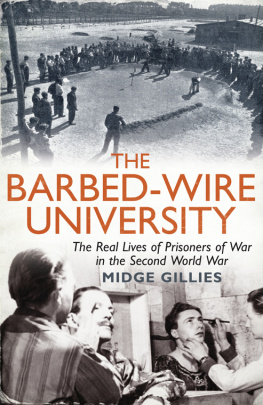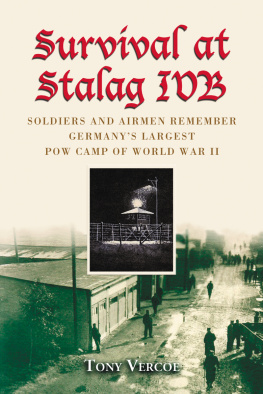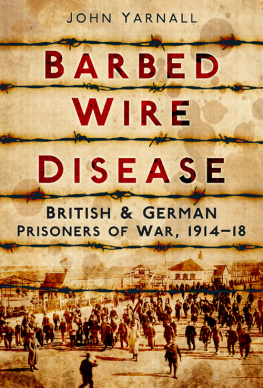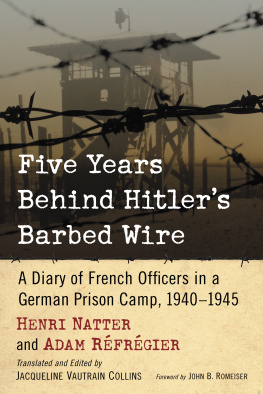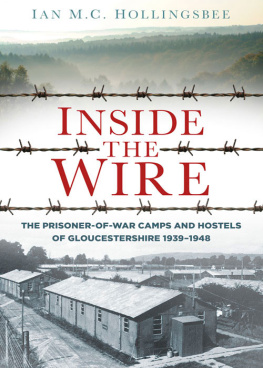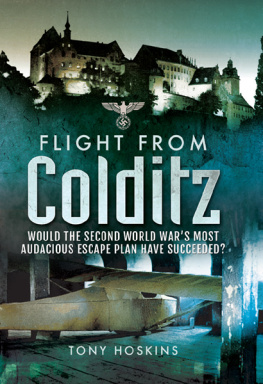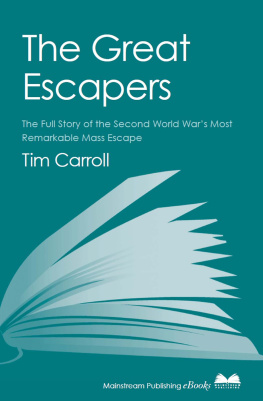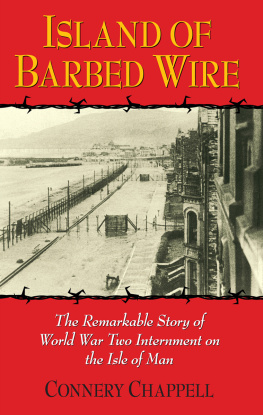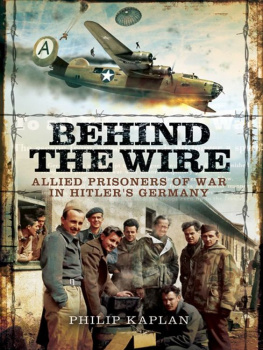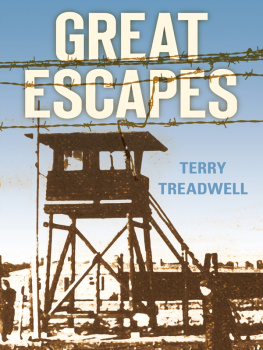To Donald Webster Gillies
POW, husband, father, grandfather.
Contents
Many languages were spoken along the ThailandBurma Railway including English, Dutch and Japanese. As a result place names often have a variety of spellings, indicating a foreigners attempt to pronounce a Thai word phonetically.
In most instances I have adopted the form commonly used by historians of the railway, for example, Ban Pong, Chungkai, Hintok, Nakhon Pathom, Nong Pladuk, Tarsao, Wampo.
You see the point is, if youve got a very restricted supply of food and opportunity, and a continual danger [you] tended to think you can do what you like when you get out of this lot; you must do what you like, because nothing could be worse, or as bad So it gives you a kind of, perhaps, a false hope in a way you think the worlds going to be all right when you get out and that you can do what you want to do. So I think I had made my mind up that I wanted to be a painter, because if you were, as I was doing, painting things perhaps a lot better than most people then perhaps you would be able to do that when you get out.
Sir Terry Frost, artist and former Prisoner of War
My father could never sit still, never keep quiet. Watching Match of the Day on television with him meant enduring an agony of leg twitching and head jerks as he willed the ball into the back of the net. A missed opportunity was followed by a howl of exasperated disbelief as his fists thumped the wooden armrests of his battered armchair. When he wasnt striking the armrests he would casually drum his fingers on them so that over the years the chairs extremities gained a smooth patina. As a former footballer he had no sympathy for a striker who booted a ball over an open goal or much worse resorted to the continental practice of lying prostrate, apparently in agony in order to win a free kick.
He was all-or-nothing. He gave up smoking overnight and when the cravings became too great would retire to our Morris Minor to savour the plastic-nicotine aroma that lingered there. And when he started to pile on weight after abandoning cigarettes he instantly gave up his two spoonfuls of sugar in tea and coffee and took up cycling until he regained his fighting weight.
He had started in middle age to look like two of the most talked-about men in our household Eric Morecambe and Jim Callaghan. Like them he was balding and wore thick-rimmed glasses. Like Eric Morecambe he developed a habit of pushing his glasses up the bridge of his nose with his forefinger when he wanted to emphasise a point. And like the comedian he would adjust them from the side with thumb and forefinger in a nervous shuffle if he said something that he suspected might be slightly risqu.
His way of dressing was much more like a Labour prime ministers neat but not ostentatious. On his days off he wore a tie, V-necked pullover to keep away the chill and sober suit. As he grew older the clothes loosened both literally and metaphorically. The grey woollen socks my mother knitted for him gathered in pools round his ankles and her Arran jumper expanded into a thigh-length tunic. Daringly, he once asked for a flowery shirt from the Boden catalogue but instantly rejected it because he said it made him look like Nelson Mandela whose politics he admired but whose fashion sense he knew he could never match. He always wore his heart on his sleeve but the sleeve was never more exotic than a perfectly pressed, navy blue blazer.
So when he fell silent in front of the television, it was usually ominous. In the early 1990s there were several occasions when television images stopped him in his tracks, when the fingers gave up drumming on the armrest and instead gripped it hard. The pictures of Terry Waite, Brian Keenan and John McCarthy, all held hostage in Beirut for several years, arriving confused and startled on British soil stirred up uncomfortable memories that I could not place. My father grimaced at the screen, as if acknowledging some common bond, and then looked away. My mother and I both sensed not to ask questions.
The photo of RAF pilot John Peters was too painful for him even to look at. Peters was shot down over Iraq at the start of the Gulf War in January 1991 and images released by Saddam Husseins regime showed him with a heavily bruised face and swollen eyes. His hands seem to be shackled and he is slumped forward, too angry or ashamed to confront the camera. Despite his khaki flying suit, the British flag just visible on his right shoulder, he looks as vulnerable as a young boy caught playing soldiers when he should be doing his homework. My father tutted at the TV screen, with a mixture of regret and recognition.
That my father had once been a prisoner of war was one of those undisputed facts that I grew up knowing as surely as I knew his country of birth Scotland. But prisoner of war was a label, just like one of his many job titles shipyard joiner, semi-professional footballer, grocer, security guard, double glazing salesman, telephonist which I didnt really understand.
As a small child I remember being bitterly disappointed to discover that he had been a prisoner of war, not a convict. I so badly wanted him to have committed some heat-of-the-moment crime for which he had to pay by spending years in a high-walled Victorian prison and from which only the love of a good woman (my mother) had rescued him. It came as a grave disappointment to discover that it was merely misadventure that allowed the Germans to capture him and meant he spent eighteen months, as I saw it, tucked up in a stalag somewhere in the German Reich.
When I was about ten we would regularly gather round the black and white television set to watch Colditz with its cast of stereotypical officers: Robert Wagner as the handsome Flight Lieutenant Phil Carrington and Jack Hedley as the stern senior British officer, Lieutenant-Colonel John Preston. Colditz was a period drama as removed from my fathers own experience as our other family favourite, Upstairs, Downstairs. He was equally happy to cheer on Steve McQueen every Christmas in The Great Escape as he sat astride his motorbike in his chinos that never picked up any dirt, revving his motorbike in an attempt to outwit the Nazis. My father was always the first to start whistling the films theme tune.
If I had been looking harder I might have spotted clues to what it meant to be a POW in the spattering of German words he regularly reverted to: Raus! (to get me out of bed or his armchair), Brot (bread), Kartoffeln (potatoes), Gute Nacht (good night), danke (thank you) and bitte (please). And then there was the box of provisions that my mother packed up for me at the start of every university term. It usually contained supermarket Brie tightly wrapped in cellophane, a jar of Nescaf, and chocolate Brownies made from the favourite family cakes section of the garishly illustrated Hamlyn All Colour Cook Book. My parents both referred to this box as my Red Cross parcel.
But the biggest clue as to how being a POW shaped him was his indefatigable optimism. Hyperbole came easy to him. He had a way of wheedling out information from strangers and the most private of people and then inflating a minor success into a major triumph. Within minutes of my brother-in-law mentioning in a self-deprecating way that he had once won a school tennis tournament, my father was telling a neighbour how as a boy John had narrowly missed out on Wimbledon. My niece wasnt just pretty; she was supermodel Naomi Campbell. When he learnt that a friends father had been a Flying Officer in the war he immediately promoted him to Flight Lieutenant and on each subsequent meeting took his rank up a notch. The last time they met he had become a Squadron Leader. This compulsion to exaggerate was, I think, borne of a need to see the best in everyone. Optimism was part of his survival strategy.
Next page
